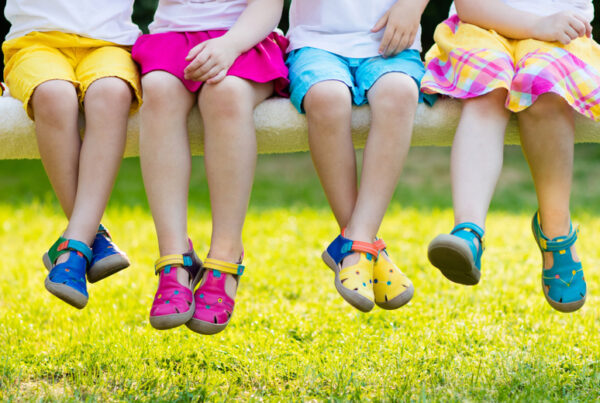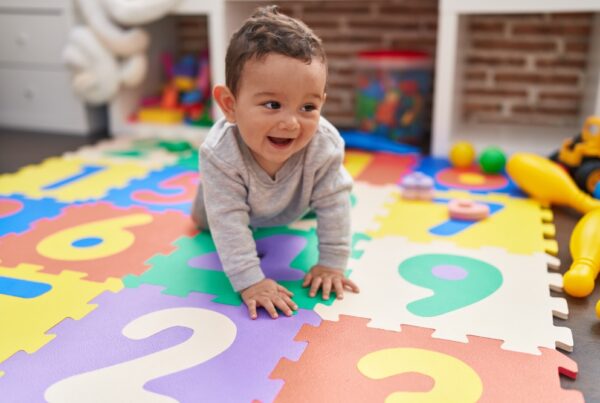When it comes to severe allergies in children, it’s important to be proactive in both preventing and treating reactions. This can make all the difference in a child’s safety, as well as the peace of mind of their parents.

So, what can you do as a childcare provider to help manage food allergies?
From food preparation staff to childcare services, there are a number of people who play a role in protecting children with severe allergies.
Here are a few tips on what everyone can do.
Allergies: the basics
First, it’s important to understand the basics of severe allergies and how they can be managed.
A severe allergy is an immune reaction to a particular food or substance, and can range from a mild reaction (such as a skin rash) to a life-threatening anaphylactic reaction.
Certain foods are more likely to cause severe reactions, such as peanuts, tree nuts, eggs, milk, fish, shellfish, soy, and wheat.
However, any food can potentially cause a reaction, even if the child has never had a reaction before.
Anaphylaxis is a severe and potentially life-threatening reaction that can occur within minutes of exposure to an allergen.
Symptoms can include swelling of the face and throat, difficulty breathing, dizziness, and abdominal pain.
If a severe reaction occurs, it is important to seek emergency treatment immediately.
Epinephrine (also known as adrenaline) is the first-line treatment for anaphylaxis, and can be administered via an auto-injector (such as an EpiPen).
Preventing allergic reactions
There are a number of steps that can be taken to prevent allergic reactions, both in the home and in child care settings.
In the home, parents should work with their child’s doctor to develop an allergy management plan. This plan should include avoiding known allergens, as well as what to do in the event of a reaction.
In a child care setting, it is important to have a policy in place for managing food allergies.
This policy should be reviewed with all staff, as well as parents of children with severe allergies.
The policy should include procedures for avoiding known allergens, as well as what to do in the event of a reaction.
All staff should be trained in the recognition and management of allergic reactions, and all child care facilities should have an emergency plan in place in case of a severe reaction.


Treating allergic reactions
If a child does have a severe allergic reaction, it is important to act quickly and follow the emergency plan.
Epinephrine should be administered as soon as possible, and the child should be taken to the nearest hospital for further treatment.
In some cases, a child may need to be given more than one dose of epinephrine. It is important to call emergency services even if the child seems to be improving after the first dose, as they may need further treatment.
Childcare safety: a collaborative effort
When it comes to severe allergies in children, it’s important that everyone works together to keep kids safe.
Whether you’re a parent, doctor, teacher, food service worker, or childcare provider, you play an important role in managing food allergies and preventing severe reactions.
Here are some tips on how you can help protect allergic children in your care:
- If you are a parent, talk to your child’s doctor about the best way to manage their food allergies. Make sure you have an emergency plan in place in case your child has a severe reaction
- If you are a doctor, be sure to talk to your patient’s parents about the best way to manage their child’s food allergies. Make sure you have an emergency plan in place in case your patient has a severe reaction
- If you are a teacher, make sure you are aware of the students in your class who have severe allergies. Work with the school nurse to make sure there is an emergency plan in place in case of a severe reaction
- If you are a food service worker, be sure to know which foods your child care facility is serving and be aware of the potential for cross-contamination. Children with severe allergies may need to avoid certain foods altogether
- If you are a childcare provider, make sure you are aware of the children in your care who have severe allergies. Work with the parents and the child’s doctor to develop an emergency plan in case of a severe reaction. Make sure all staff members are trained in how to administer emergency medication
Allergy & Anaphylaxis Australia have a large number of resources available to parents and childcare educators on the prevention and management of allergies, which you can view here.

Ensuring children with allergies feel included
Ensuring that children feel included and a part of activities and celebrations in a childcare or home environment can be difficult, but there are strategies parents, carers and educators can put in place to help children with allergies participate in these settings.
- Check all ingredients with the person in charge at an event or with the person that has made the food
- Ensure one parent, carer or educator has the role of keeping an eye on the child with allergies during the event or celebration
- Teach children with allergies not to accept food from others without first checking if it contains the allergen or by making the person offering food aware of their allergy
- Keep fun ‘safe’ food options on hand for the child with allergies so they can still participate
By working together, we can help keep all children safe from severe allergic reactions.








